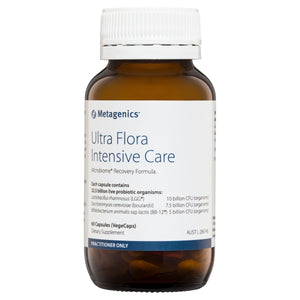Small Intestinal Bacterial Overgrowth (SIBO)
SIBO is defined as the presence of excessive bacteria in the small intestine.[1]
The development of SIBO is considered to arise following the disruption of protective mechanisms against bacterial overgrowth.[2] These include reduced bacteriostatic digestive secretion output, impaired intestinal motility, compositional changes in gut bacterial and compromised integrity of intestinal mucosa.[3],[4]
Approximately two-thirds of patients experience abdominal pain, bloating, gas, distension, flatulence, and diarrhoea.[5] In extreme cases, steatorrhea, weight loss, nutrient deficiencies and mucosal inflammation of the small bowel can also occur.[6]
Several mechanisms influence the severity of SIBO (Table 1).[7] Firstly, abnormally high levels of small bowel bacteria increase the fermentation of dietary carbohydrates, thereby causing excess gas production.[8] /p>
Following this, subsequent increases in microbial activity can lead to several complications including:
- Microbial-mediated deconjugation of bile acids; compromising fat metabolism and the absorption of fat-soluble vitamins.[9]
- Increased synthesis of microbe-produced nutrients(e.g. vitamin K and folate), as well as oxidative and inflammatory bacterial metabolites (e.g. acetaldehyde and alcohol), further outlined in Table 1 .
- Increased luminal competition with the host for nutrients, which can contribute to nutrient deficiency.[10]
Beyond these mechanisms, mucosal injury in SIBO can cause protein and carbohydrate malabsorption.
Further, damage to the gut barrier can increase immune activity due to inflammatory changes, which may worsen SIBO severity.[11]
Due to its myriad of consequences that can severely impact normal digestive function, SIBO may also aggravate other disorders, such as irritable bowel syndrome (IBS) and inflammatory bowel disease (IBD),[12] as well as several extra-intestinal conditions such as chronic fatigue syndrome,[13] acne rosacea,[14] fibromyalgia[15] and restless legs syndrome.[16]
SIBO presentations often overlap with the several functional gastrointestinal disorders such as IBS, functional diarrhoea, functional dyspepsia and bloating. A common thread between these conditions involves disturbed intestinal barrier function, which impacts enteric nerve sensitivity.[17]
In situations of chronic mucosal inflammation, increased cytokine activity within innervated gut tissue can exacerbate neural activation via the enteric nervous system (ENS), resulting in visceral hypersensitivity. This may lead to heightened sensory pain perception and worsen SIBO symptoms.[18],[19]
As such, SIBO is a condition that negatively impacts multiple aspects of digestive function, including dysbiotic gut microbiota, gut barrier dysfunction and enteric nerve sensitivity.
Small Intestinal Bacterial Overgrowth (SIBO)
Metagenics Ultra Flora Intensive Care
Metagenics Naturopathic Medicines
